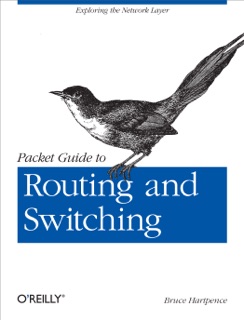Go beyond layer 2 broadcast domains with this in-depth tour of advanced link and internetwork layer protocols, and learn how they enable you to expand to larger topologies. An ideal follow-up to Packet Guide to Core Network Protocols, this concise guide dissects several of these protocols to explain their structure and operation.
This isn’t a book on packet theory. Author Bruce Hartpence built topologies in a lab as he wrote this guide, and each chapter includes several packet captures. You’ll learn about protocol classification, static vs. dynamic topologies, and reasons for installing a particular route.
This guide covers:
Host routing—Process a routing table and learn how traffic starts out across a networkStatic routing—Build router routing tables and understand how forwarding decisions are made and processedSpanning Tree Protocol—Learn how this protocol is an integral part of every network containing switchesVirtual Local Area Networks—Use VLANs to address the limitations of layer 2 networksTrunking—Get an indepth look at VLAN tagging and the 802.1Q protocolRouting Information Protocol—Understand how this distance vector protocol works in small, modern communication networksOpen Shortest Path First—Discover why convergence times of OSPF and other link state protocols are improved over distance vectors





